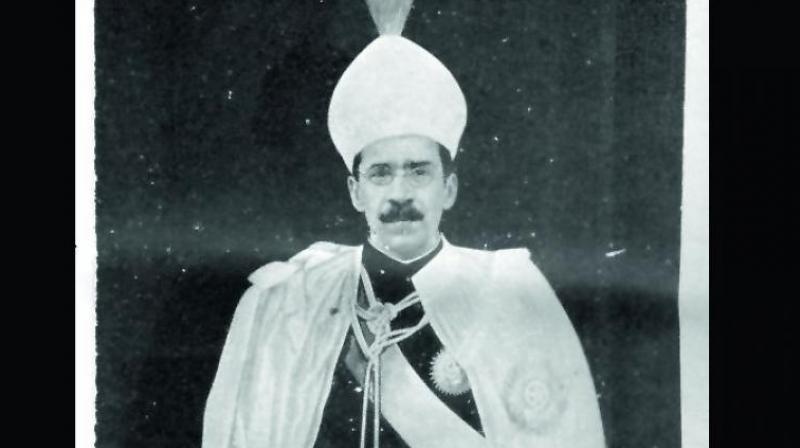Of bonds, broken promises and betrayals
Bahadur Yar Jung introduced the concept of Razakar, meaning a volunteer, for social service.

No amount of verbosity can conceal the fact that between 1943 and 1948 Mir Osman Ali Khan lost control over the administration and became a puppet of the Khasim Razvi-headed Razakar organisation, which was in turn dependent upon the Communists. They held sway over the rural areas and provided intellectual inputs to the Razakars.
Bahadur Yar Jung introduced the concept of Razakar, meaning a volunteer, for social service. The organisation became recalcitrant after Khasim Razvi took charge of the Majlis.
The Razakars were bereft of sober though and were carried away by the sabre-rattling of Khasim Razvi. He combined fanaticism with charlatanry and aimed at creating a theocratic totalitarian state. However, the Communists and the Razakars had a symbiotic relationship for their own selfish ends. The Razakars thought that they could establish a Muslim oligarchy in the state, while the Communists’ purpose was to exploit the turmoil and confusion so that they could spread their tentacles to the rest of India. Each wanted to use the other for its own ends.
In fairness, the Nizam wanted a rapprochement and working relations with the Government of India. In this endeavour he was ably assisted by his constitutional adviser, Sir Walter Moncton, an erudite scholar and able advocate. More than that, Moncton was closely related to Lord Mountbatten, Viceroy of India. Mountbatten was well aware of the Asaf Jahi’s services to the British Empire. Keeping all these things in view, they drafted a note to the effect that the Nizam would surrender defence, external affairs, and communication to the Government of India, and otherwise would have full autonomy. The note was made in consultation with the Nizam. Having obtained his consent, Mountbatten showed the note to both Nehru and Rajendra Prasad. Initially, they demurred.
Mountbatten prevailed and they averred that if Patel gave his assent to the note, they would too.
At that time Patel was convalescing in Dehradun. Mountbatten and Moncton went to Dehradun to call on him as a farewell visit, as Mountbatten would be demitting office six weeks later and leaving for England for good. Mountbatten showed the note to Patel and requested him to affix his signature. Patel politely refused. Crestfallen Mountbatten put the note in his pocket and took leave of Patel.
As Mountbatten was leaving, Patel got up from his sickbed and went to the door and requested him to give him the note. He then signed it.
Patel’s personal secretary V. Shankar, ICS, was present and he asked him why he had signed the note, which would have far-reaching political consequences in India. Patel nonchalantly said that he signed it in deference to the wishes of Mountbatten. He also said that the Nizam would not stand by the agreement, for the Nizam was not a free man, and the Razakars and Communists would not allow him.
After reaching Delhi, Mountbatten showed the note to Nehru and Rajendra Prasad. They exclaimed ‘Incredible’!
After that, a formal meeting was arranged between the GoI and Hyderabad delegation. The GoI delegation comprised V.P. Menon H.M. Patel and N.M. Buch while the Hyderabad delegation comprised Sir Walter Moncton, Mir Laik Ali P. Venkatarama Reddy, Abdul Rauf and Zahir Ahmed.
The meeting held on June 9, 1948 in the Government House, New Delhi deliberated the issues threadbare and drew up an agreement. They also drafted a firman to be issued by the Nizam after his signature on the agreement.
No sooner did the Hyderabad delegation reached the capital that Laik Ali leaked the content of the agreement to Khasim Razvi and the Communists. They opposed the agreement and called for a hartal.
Taking advantage of the situation, Laik Ali surreptitiously drew up a telegram in the name of Nizam that the terms of the agreement were not acceptable. He showed the telegram to the Nizam. Traumatised, the Nizam idd not say anything. Laik Ali took it as approval and sent it to Delhi.
It was a tragedy of action as well as thought – the denouement. A military intervention, euphemistically called ‘Police Action’.
The writer is Fellow of Royal Asiatic Society of Great Britain & Ireland Member of Royal Historical Society, London

